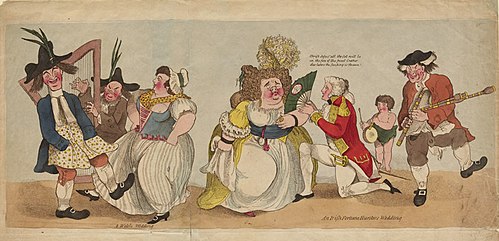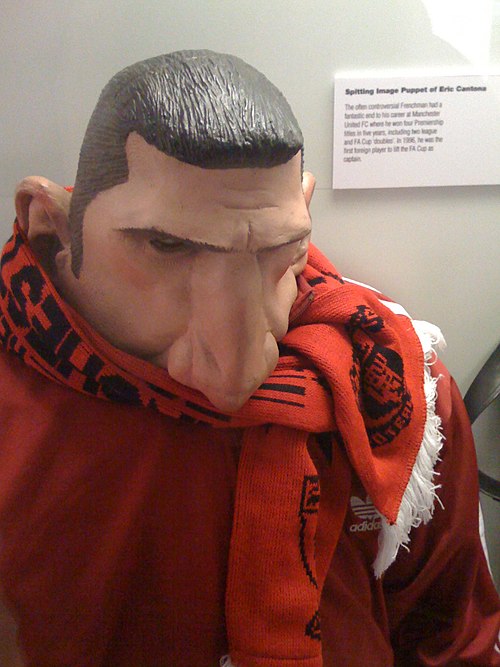Satirenoun
(uncountable) A literary device of writing or art which principally ridicules its subject often as an intended means of provoking or preventing change. Humor, irony, and exaggeration are often used to aid this.
Satirenoun
(countable) A satirical work.
Satirenoun
Severity of remark.
Satirenoun
A composition, generally poetical, holding up vice or folly to reprobation; a keen or severe exposure of what in public or private morals deserves rebuke; an invective poem; as, the Satires of Juvenal.
Satirenoun
Keeness and severity of remark; caustic exposure to reprobation; trenchant wit; sarcasm.
Satirenoun
witty language used to convey insults or scorn;
Satire
Satire is a genre of the visual, literary, and performing arts, usually in the form of fiction and less frequently non-fiction, in which vices, follies, abuses, and shortcomings are held up to ridicule, with the intent of shaming individuals, corporations, government, or society itself into improvement. Although satire is usually meant to be humorous, its greater purpose is often constructive social criticism, using wit to draw attention to both particular and wider issues in society.
Ironynoun
A statement that, when taken in context, may actually mean something different from, or the opposite of, what is written literally; the use of words expressing something other than their literal intention, often in a humorous context.
Ironynoun
Dramatic irony: a theatrical effect in which the meaning of a situation, or some incongruity in the plot, is understood by the audience, but not by the characters in the play.
Ironynoun
Ignorance feigned for the purpose of confounding or provoking an antagonist; Socratic irony.
Ironynoun
The state of two usually unrelated entities, parties, actions, etc. being related through a common connection in an uncommon way.
Ironynoun
{{cite-journal
Ironyadjective
Of or pertaining to the metal iron.
Ironyadjective
Made or consisting of iron; partaking of iron; iron; as, irony chains; irony particles; - In this sense iron is the more common term.
Ironyadjective
Resembling iron in taste, hardness, or other physical property.
Ironynoun
Dissimulation; ignorance feigned for the purpose of confounding or provoking an antagonist.
Ironynoun
A sort of humor, ridicule, or light sarcasm, which adopts a mode of speech the meaning of which is contrary to the literal sense of the words.
Ironynoun
witty language used to convey insults or scorn;
Ironynoun
incongruity between what might be expected and what actually occurs;
Ironynoun
a trope that involves incongruity between what is expected and what occurs
Irony
Irony (from Ancient Greek εἰρωνεία eirōneía 'dissimulation, feigned ignorance'), in its broadest sense, is a rhetorical device, literary technique, or event in which what on the surface appears to be the case or to be expected differs radically from what is actually the case. Irony can be categorized into different types, including verbal irony, dramatic irony, and situational irony.















